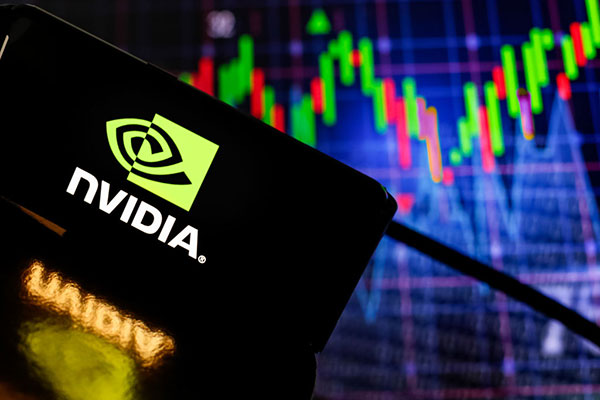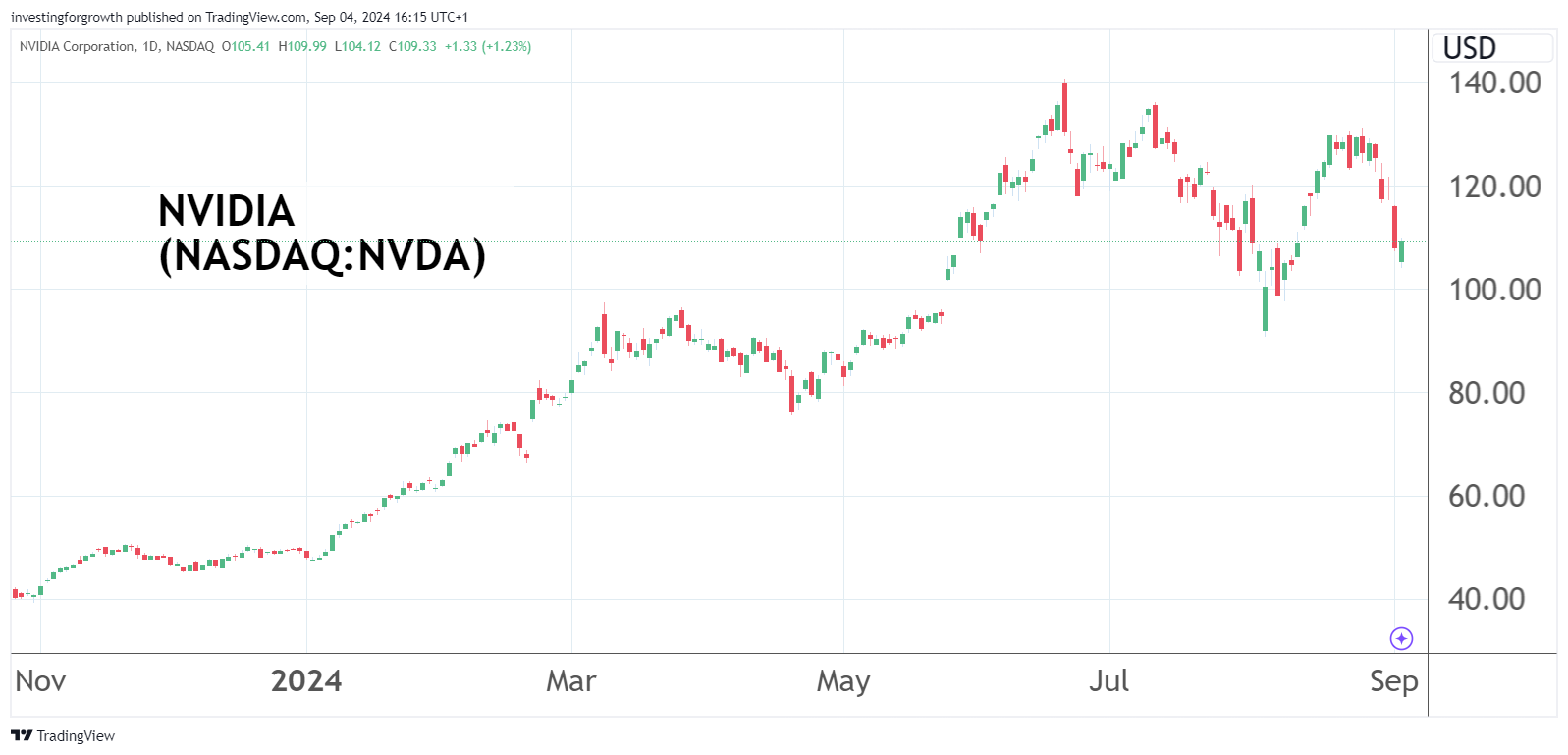Nvidia stock slump heightens fear of September crash
Both the American tech giant and US stock market have wobbled at the beginning of what is historically the worst month of the year for shares. Graeme Evans looks at what might happen in the weeks ahead.
4th September 2024 15:43
by Graeme Evans from interactive investor

A familiar September chill hung over global markets today as the S&P 500 index opened lower and AI chipmaker NVIDIA Corp (NASDAQ:NVDA) added to the biggest one-day valuation decline on record.
Nvidia took a $279 billion hit when shares reversed 9.5% in Tuesday’s bleak post-holiday session as Wall Street experienced a rerun of the volatility seen at the start of August.
- Invest with ii: Buy US Stocks from UK | Most-traded US Stocks | Cashback Offers
The heavy selling, which was linked to US recession fears on the back of poor manufacturing figures, came in the first dealings of what’s typically a poor month for returns.
UBS Global Wealth Management points out that the S&P 500 index has fallen in each of the last four years and in seven of the last 10.
It added: “This historical context may help explain why Tuesday's move could be signalling a broader risk-off sentiment as investors brace for potential volatility.”
Attention will now turn to the US labour market and Friday’s non-farm payrolls report for August. Another disappointing release could heighten recession fears and prompt the Federal Reserve to take more aggressive action on 17-18 September and following meetings.
- What I’d do with these two hugely successful stocks
- Stockwatch: time to worry over Warren Buffett’s rapid sales?
- Downbeat Nvidia reaction fails to cloud AI outlook
Uncertainty about the economic growth outlook particularly impacts companies with cyclical revenue streams, including those at many technology companies.
The shares of Nvidia have shown signs of strain since the company reported earnings last week that were better than forecast but not in the same league as previous results.
The pressure continued after last night’s opening bell when Bloomberg reported that the US Justice Department sent subpoenas to Nvidia and other companies in an antitrust investigation.

Source: TradingView. Past performance is not a guide to future performance.
The S&P 500 index finished 2.1% lower last night, having just returned to near a record high following the 8% reversal in the turmoil of early August. The VIX volatility index jumped more than five points in its second-largest rise in two years, the largest being last month.
UBS expects stocks to trade higher over the next six to 12 months but would not rule out renewed volatility in the short term. It urges clients to keep a long-term perspective, stay the course and focus on building a balanced and diversified portfolio.
There’s also some encouragement that the performance of Wall Street’s leading benchmark is broadening from just the Magnificent Seven, with the equal-weight S&P 500 at a record high following a 7% rise in the two months to the end of August.
Even if US markets succumb to more September blues, the composition of the FTSE 100 index means there’s no guarantee that the UK market will follow suit.
- Lloyds Bank among FTSE 100 stocks paying £14bn in dividends
- Sign up to our free newsletter for share, fund and trust ideas, and the latest news and analysis
The top flight rose 2% in September 2023 when oil and mining stocks helped offset global jitters over the prospect that interest rates were likely to stay higher for longer.
In contrast, the S&P 500 index and Nasdaq 100 fell by 5% and the Dow Jones Industrial Average by 3.5%. The FTSE 250 index also outperformed Wall Street with a decline of 1.75%.
Prior to last year’s September improvement, the FTSE All-Share had fallen seven times in the past decade and in each of the previous three years.
September 2022 was a particularly bad one as the index slumped 6.1% in its worst performance since 2008. The FTSE 100 lost 5.4%, an outperformance given that the S&P 500 tumbled over 9% and the Nasdaq Composite by 10.5%.
These articles are provided for information purposes only. Occasionally, an opinion about whether to buy or sell a specific investment may be provided by third parties. The content is not intended to be a personal recommendation to buy or sell any financial instrument or product, or to adopt any investment strategy as it is not provided based on an assessment of your investing knowledge and experience, your financial situation or your investment objectives. The value of your investments, and the income derived from them, may go down as well as up. You may not get back all the money that you invest. The investments referred to in this article may not be suitable for all investors, and if in doubt, an investor should seek advice from a qualified investment adviser.
Full performance can be found on the company or index summary page on the interactive investor website. Simply click on the company's or index name highlighted in the article.